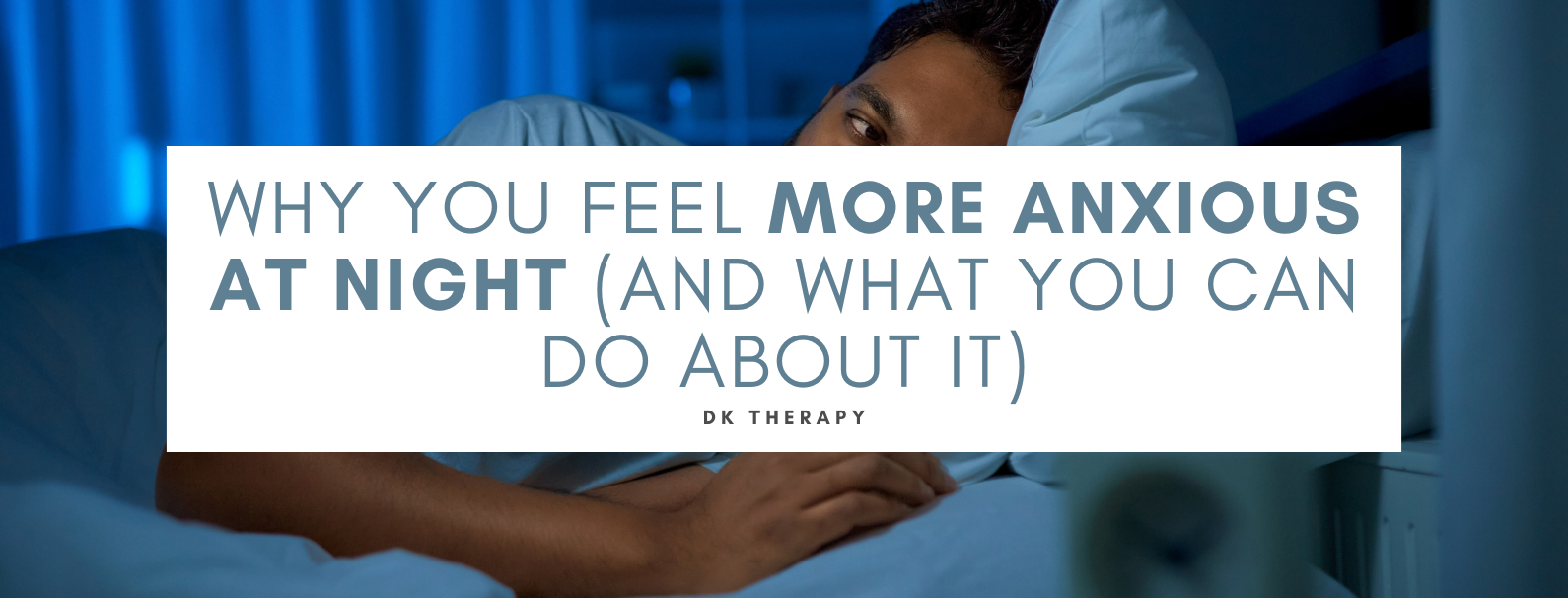
Why You Feel More Anxious at Night (and What You Can Do About It)
Anxiety can strike at any time, but many people find their worries intensify after the sun sets. Nighttime anxiety is a common phenomenon, one that can leave you tossing and turning, unable to fall asleep. But why does anxiety seem to peak at night, and what can you do to make sure you get the rest you need?
Let’s explore the causes and solutions for nighttime anxiety.
The Causes of Nighttime Anxiety
Like many other forms of anxiety, nighttime anxiety can come from several sources and have several exacerbating factors.
Lack of Distractions
During the day, your mind is usually occupied with work, family, and other responsibilities. Your overall busyness acts as a distraction, which keeps your worries at bay while you’re out and about. At night, however, the quiet can give your thoughts free rein.
Physical and Emotional Fatigue
After a long day, your body and mind may feel drained, making it harder to manage stress. When you’re tired, your ability to process thoughts and emotions diminishes, which can bring about feelings of anxiety.
Hormonal and Biological Factors
Your body’s natural circadian rhythm influences your mood and mental state. As night falls, hormonal changes, such as a drop in cortisol levels and fluctuations in melatonin, can affect your emotional balance, leaving you more vulnerable to anxiety.
Anticipation of the Next Day
Many people feel anxious about all the things they’ll need to do when they get up. The quiet of nighttime often helps populate our minds with worry about deadlines, meetings, or personal challenges.
Strategies to Manage Nighttime Anxiety
Nighttime anxiety can be managed with intentional practices. Here are a few potentially effective strategies. Feel free to experiment and combine techniques to find what works best for you.
Relax During Your Bedtime Routine
A calming pre-sleep ritual can remind your brain that it’s time to unwind. Consider activities like:
- Taking a warm bath
- Practicing gentle yoga or stretching
- Listening to soothing music
Practice Mindfulness and Meditation
Mindfulness techniques can help you stay present in the moment and reduce rumination when you feel anxiety at night. Try guided meditation tracks, deep breathing exercises, or progressive muscle relaxation techniques.
Limit Screen Time Before Bed
Turn off electronic devices at least an hour before you go to bed. Replace screen time with low-tech activities like reading a book, journaling, or crocheting.
Create a Sleep-Friendly Environment
Your surroundings play an important role in your sleep quality. Set up the right bedroom environment by:
- Keeping the room cool, dark, and quiet
- Investing in comfortable bedding
- Using a white noise machine to block out distractions
Keep a Consistent Sleep Schedule
Going to bed and waking up at the same time every day helps regulate your body’s internal clock. A consistent routine makes it easier to transition to sleep and prevent nighttime restlessness.
Limit Stimulants and Alcohol
Caffeine and alcohol can interfere with your ability to relax and sleep soundly. As such, it’s wise to try avoiding these substances in the hours leading up to bedtime.
Nighttime anxiety can feel overwhelming, especially when it lasts for weeks or longer. It’s important to remember that you’re not alone, though, and that relief is possible. By understanding the triggers and implementing strategies to calm your mind, you can reclaim your evenings and enjoy restful, rejuvenating sleep.
If you’re struggling with nighttime anxiety and you’d like to work with a skilled therapist, reach out to us at DK Therapy.




